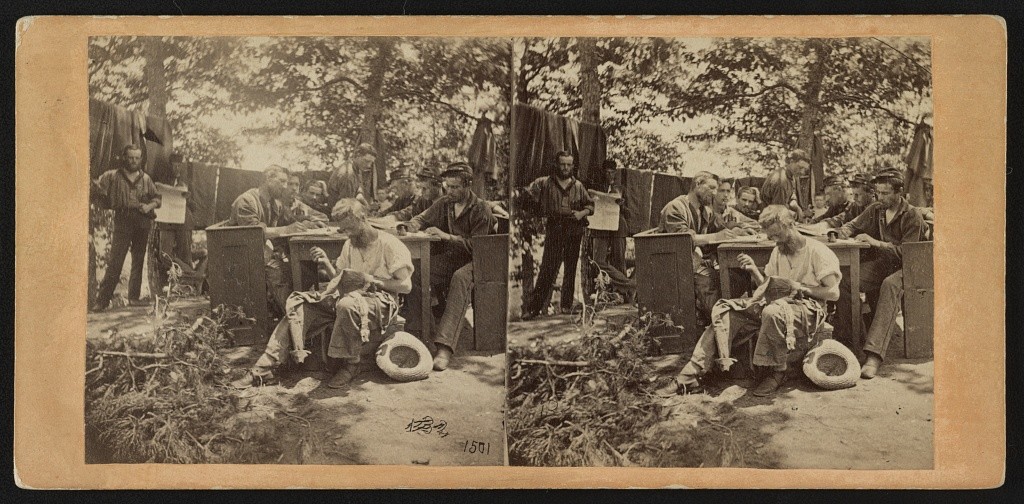!["[Portrait of Maj. Gen. George G. Meade, officer of the Federal Army, and corps commanders, vicinity of Washington, D.C., June 1865: Horatio G. Wright, John A. Logan, Meade, John G. Parke, Andrew A. Humphreys] " (Library of Congress)](https://www.bluegrayreview.com/wp-content/uploads/2015/06/03703v-300x242.jpg)
“[Portrait of Maj. Gen. George G. Meade, officer of the Federal Army, and corps commanders, vicinity of Washington, D.C., June 1865: Horatio G. Wright, John A. Logan, Meade, John G. Parke, Andrew A. Humphreys] ” (Library of Congress)
ARMY OF THE POTOMAC.; Maj.-Gen. Meade’s Farewell Order.
WASHINGTON, Thursday, June 29.
The farewell order of Gen. MEADE is published. It is as follows:
HEADQUARTERS OF THE ARMY OF THE POTOMAC, June 28, 1865.
SOLDIERS: This day two years ago, I assumed command of you under the orders of the President of the United States. To-day, by virtue of the same authority, the army ceasing to exist, I have to announce my transfer to other duties, and my separation from you. It is unnecessary to enumerate all that has occurred in these two eventful years, from the grand and decisive battle of Gettysburgh, the turning point of the war, to the surrender of the Army of Northern Virginia at Appomattox Court-house. Suffice it to say that history will do you justice. A grateful country will honor the living, cherish and support the disabled, and sincerely mourn the dead. In parting from you, your Commanding General will ever bear in memory your noble devotion to your country, your patience and cheerfulness under all the privations and sacrifices you have been called on to endure.
Soldiers, having accomplished the work set before us, having vindicated the honor and integrity of our government and flag, let us return thanks to Almighty God for his blessing in granting us victory and peace, and let us earnestly pray for strength and light to discharge our duties as citizens as we have endeavored to discharge them as soldiers.
GEORGE G. MEADE,
Major-General United States Army.

the stories they could tell (“War views. No. 1501, Camp life, Army of the Potomac – writing to friends at home” (1865; Library of Congress))
In his Memoirs Ulysses S. Grant summarized General Meade’s performance during the war:
General Meade was an officer of great merit, with drawbacks to his usefulness that were beyond his control. He had been an officer of the engineer corps before the war, and consequently had never served with troops until he was over forty-six years of age. He never had, I believe, a command of less than a brigade. He saw clearly and distinctly the position of the enemy, and the topography of the country in front of his own position. His first idea was to take advantage of the lay of the ground, sometimes without reference to the direction we wanted to move afterwards. He was subordinate to his superiors in rank to the extent that he could execute an order which changed his own plans with the same zeal he would have displayed if the plan had been his own. He was brave and conscientious, and commanded the respect of all who knew him. He was unfortunately of a temper that would get beyond his control, at times, and make him speak to officers of high rank in the most offensive manner. No one saw this fault more plainly than he himself, and no one regretted it more. This made it unpleasant at times, even in battle, for those around him to approach him even with information. In spite of this defect he was a most valuable officer and deserves a high place in the annals of his country.

![[Portrait of Maj. Gen. George G. Meade, officer of the Federal Army, and staff, vicinity of Washington, D.C., June 1865] (LOC: http://www.loc.gov/item/cwp2003000354/PP/)](https://www.bluegrayreview.com/wp-content/uploads/2015/06/03778v-1024x826.jpg)